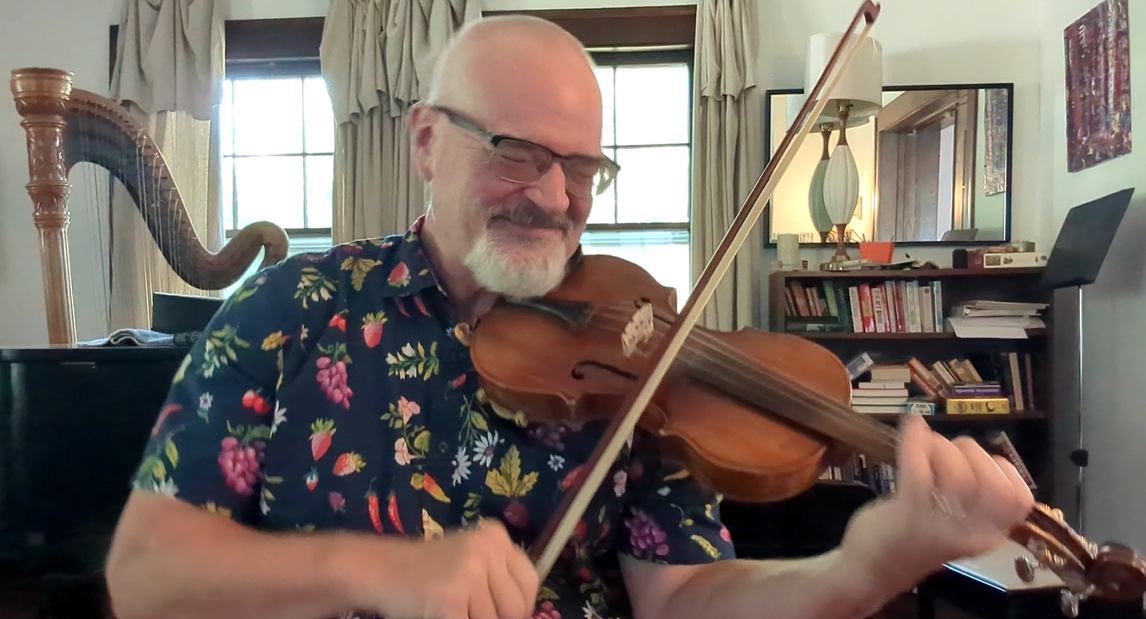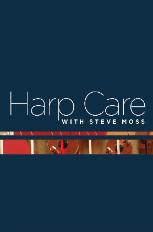
If you play your harp (or any other instrument) in public, you’ve no doubt had this experience. Someone comes up to you during or after your performance, compliments your music, but then launches into an explanation of why they themselves never learned to play an instrument. “I have no musical talent,” they say, or “when God was handing out talent, He skipped me.” The idea that musicians and other artists need to be born with talent to be good at what they do is a pervasive attitude in our culture. In my opinion, it’s a very destructive attitude as well.
This attitude hurts musicians and non-musicians alike, and it especially harms those who dream of playing a musical instrument but are afraid they have no “talent.” It hurts musicians because it implies that it is not the hours of practice we log that makes the difference, but the talent we were born with. It belittles the effort we put in. It also creates a barrier between us and those who consider themselves “non-talented.” When they tell us “I wish I had your talent,” they’re saying “I’m not like you and I never could be.” These same non-musicians may feel like they lack something, that they are somehow “less than” those blessed with talent.
This idea hurts non-musicians who dream of taking up music most of all. They look at the famous musicians whose songs or playing they love, and can’t imagine ever playing as well. “I could never do that,” they think. I’m not that talented. Why even try?
Why even try? Because playing music is fun! It’s good for you. It brings joy and beauty to the world. It helps your brain stay sharp as you age. And here’s the radical thing: you don’t need musical talent to play music. You need to put in the time and put in the work to learn.
I play several instruments, including the guitar, banjo, and fiddle. My favorite music is traditional folk songs and fiddle tunes. I enjoy making music and I’ve made lots of friends doing it. I do not consider myself musically talented. It does not come especially easily to me. I make mistakes when I play. I get nervous and miss notes when I’m playing in public. I’ve tried and tried to play more complicated tunes but no matter how much I practice, I can’t seem to do them as well as the players I look up to. But if I practice, I do get better, and I enjoy hearing the improvement. I’m not going to be making a Grammy winning album anytime soon, but I have a heck of a lot of fun with music.
And what constitutes musical talent anyway? The term isn’t very descriptive. It implies one plays music well, but there are so many abilities and skills that go into making music. Some musicians are excellent at reading sheet music but not comfortable improvising. Some are at their best playing solo while others excel as part of a group. Some don’t have limited technical skills, but great at putting on a good show. There may be any number of things that come more easily to some people than others, that can make up part of what we call talent. If you are good at memorizing things, for instance, this will come in handy if you play music. If you’re good at counting, you can put that talent to work as a musician. If you are able to overcome nerves and perform in public, this is definitely a talent (one I wish I had more of). All musicians, like all people, feel more comfortable with some skills and less so with others. All skills can be developed, but some seem to develop more easily or with more difficulty for some people. A musician may be considered extra talented if they are lucky enough to have a knack for several different skills that come into play in music.
But whether you have a knack for it or not, learning to play music takes work and it takes time. You pick up an instrument and learn how it makes sound. The sounds you make often aren’t so beautiful at first, but you practice and get better. Your brain makes connections and develops neural pathways. You develop muscle memory. These are things virtually anyone can do if they put in the time and effort.
If you don’t play an instrument but want to, don’t worry about talent. The old adage about 10% inspiration and 90% perspiration is true. If you put in the work, you can improve. Most musicians you admire worked long and hard to develop the skills they have. If you’re sixty years old and just learning, can you be the next Judy Loman or Yo Yo Ma? Probably not, but you can have a lot of fun making music for the joy of it. My mother took up the banjo in her fifties and is still playing at age 85. Don’t compare yourself to others who have put in years of work that you have not yet put in. Don’t compare yourself to others period if you can help it. Give music a try. If you sound bad, try to live with that and persevere. We all sound bad at first. Don’t quit and you’ll get better. And have fun with it, for crying out loud!
PS. The photo of my fiddle and me above is taken from a video I made recently playing an Irish jig. If you’d like to watch, please check it out here.


0 Comments